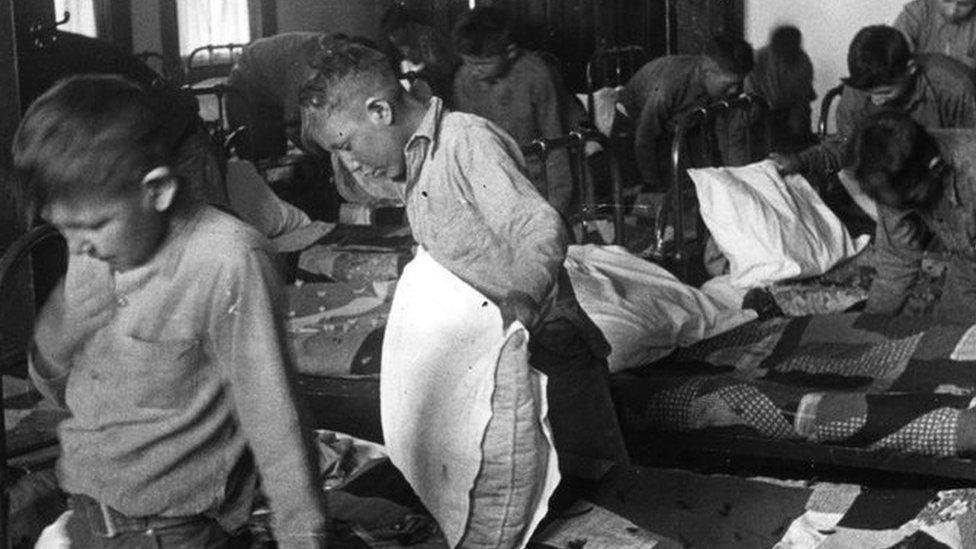Joyce Echaquan death: Canada PM Trudeau decries 'worst form of racism'
- Published
Joyce Echaquan streamed herself from hospital shortly before her death
A video of a dying indigenous woman screaming in distress and being insulted by hospital staff shows the "worst form of racism", says Canadian Prime Minister Justin Trudeau.
Three investigations are under way and a nurse has been fired since the video emerged early this week.
The woman, Joyce Echaquan, streamed her treatment on Facebook shortly before her death in Joliette, Quebec.
There has been a growing outcry since the incident.
It is the latest in a series of events that have raised questions about systemic racism faced by indigenous people in Canada.
In 2015 a report found that racism they faced in the healthcare system contributed to their overall poorer health outcomes, external, compared to non-indigenous Canadians.
On Wednesday, Mr Trudeau said Ms Echaquan's case was "another example of systemic racism".
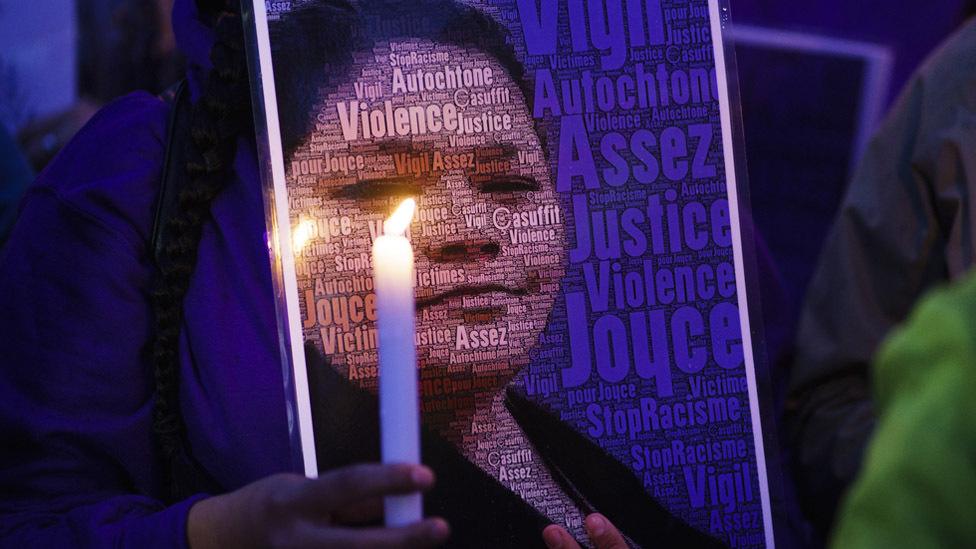
A vigil for Joyce Echaquan was held this week
What happened?
Ms Echaquan, a 37-year-old Atikamekw woman, had gone to the Joliette hospital, about 70km (45 miles) from Montreal, suffering from stomach pains.
The mother of seven filmed herself in her hospital bed, external screaming and calling for urgent help.
A member of staff can be heard saying to her, in French: "You're stupid as hell." Another says Ms Echaquan had made bad choices in life and asks what her children would think of her behaviour.
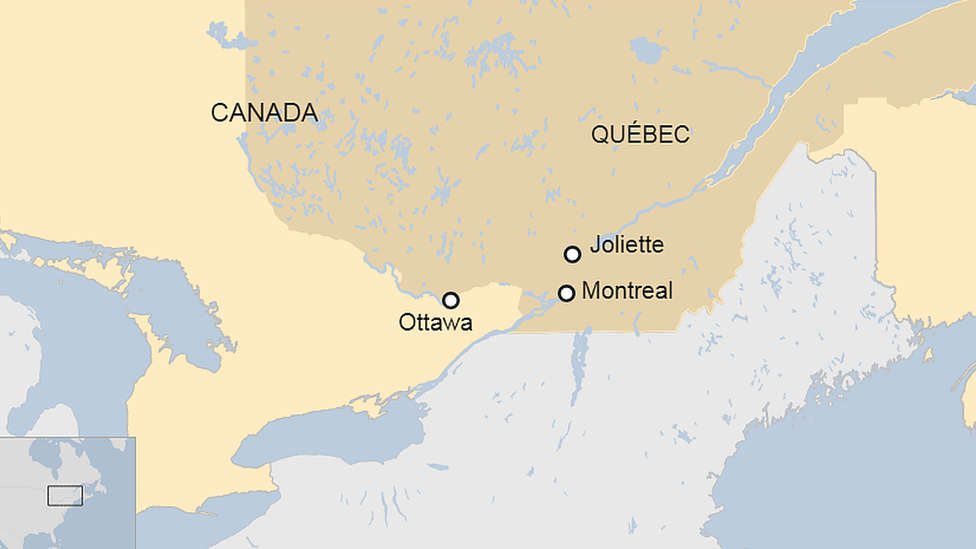
Ms Echaquan died soon afterwards. Her relatives told Radio-Canada that she had a history of heart trouble and was worried that she was being given too much morphine.
What has the reaction been?
"The nurse, what she said, is totally unacceptable, it's racist and she was fired," Quebec Premier François Legault told a news conference this week. "We must fight this racism."
Three current investigations have been launched. Two will be conducted by regional health authorities, one looking into Ms Echaquan's case and another into practices at the hospital.
A forensic pathologist responsible for investigating deaths in suspicious circumstances or due to negligence will also look into her death.
Ghislain Picard, Grand Chief of the Assembly of First Nations Quebec and Labrador, said racism was "very often the fruit of government policies which lead to systemic discrimination".
The premier is expected to meet with Chief Picard on Friday.
In a tweet, Perry Bellegarde, National Chief of the Assembly of First Nations, said the incident showed that discrimination against indigenous people in Canada's healthcare system remained prevalent.
Allow X content?
This article contains content provided by X. We ask for your permission before anything is loaded, as they may be using cookies and other technologies. You may want to read X’s cookie policy, external and privacy policy, external before accepting. To view this content choose ‘accept and continue’.

The Atikamekw council of Manawan said the remarks "clearly demonstrate racism against First Nations".
A vigil for Ms Echaquan was held outside the Joliette hospital on Tuesday evening and a protest is planned in Montreal at the weekend.
Online fundraising campaigns have been set up to support her family, with one raising over C$160,000 ($120,000; £91,500).
What's the background?
In recent years Canada has been coming to terms with racial injustice suffered by its indigenous people.
Last year a government inquiry found that Canada was complicit in "race-based genocide" against indigenous women.
The report said indigenous women were 12 times more likely to be killed or to disappear than other women in Canada. The inquiry said the cause was deep-rooted colonialism and state inaction.
Quebec published its own report a year ago, following a public inquiry into the relationship between indigenous people and the provincial government services.
The commissioner found that it was "impossible to deny that members of First Nations and Inuit are victims of systemic discrimination, external in their relations with the public services that are the subject of this inquiry".
Police dashcam footage captures the violent arrest of Allan Adam
In June this year, video showed an indigenous chief, Allan Adam, being repeatedly punched by police as he was arrested in Alberta, sparking outrage across the country.
Also in June, health authorities in the province of British Columbia launched an investigation amid claims that some hospital staff were betting on the blood alcohol level of indigenous patients.
- Published9 January 2020
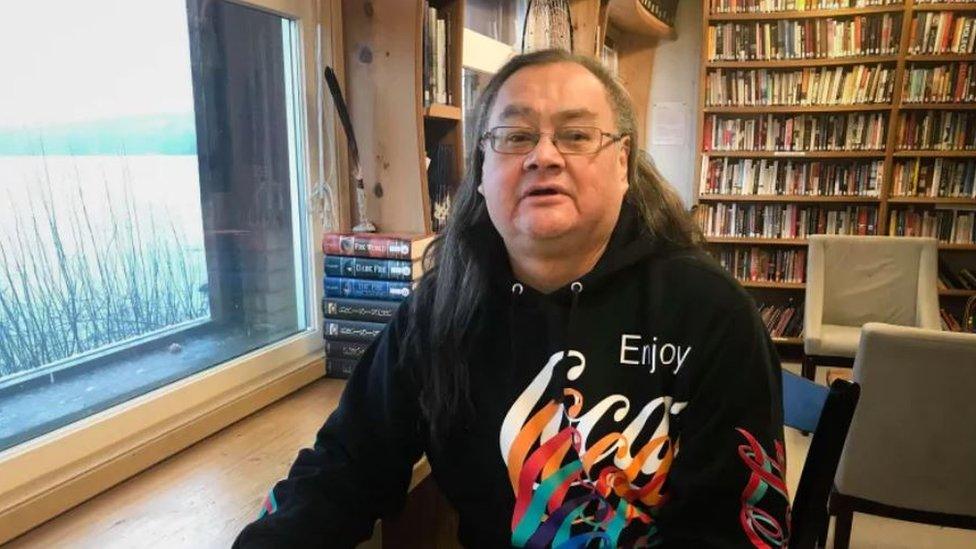
- Published19 September 2019
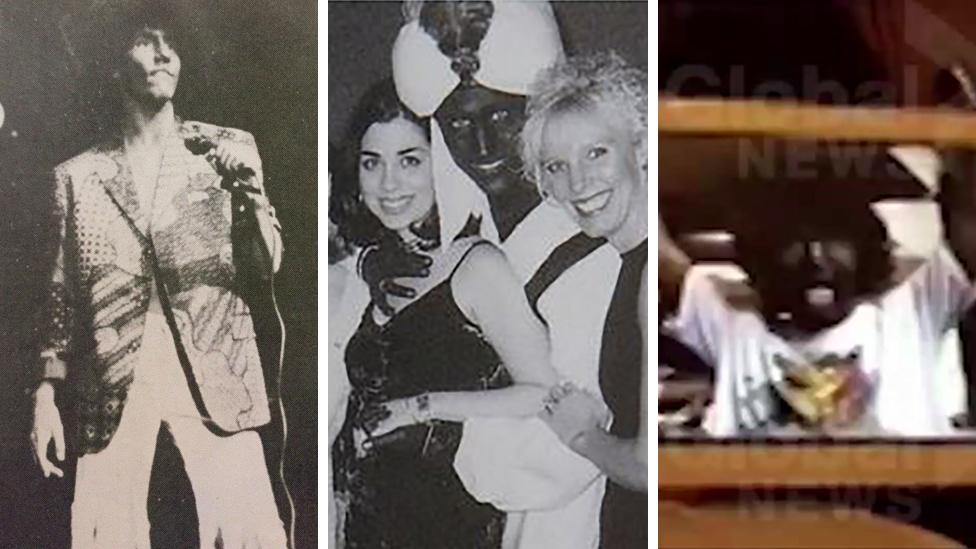
- Published21 December 2016
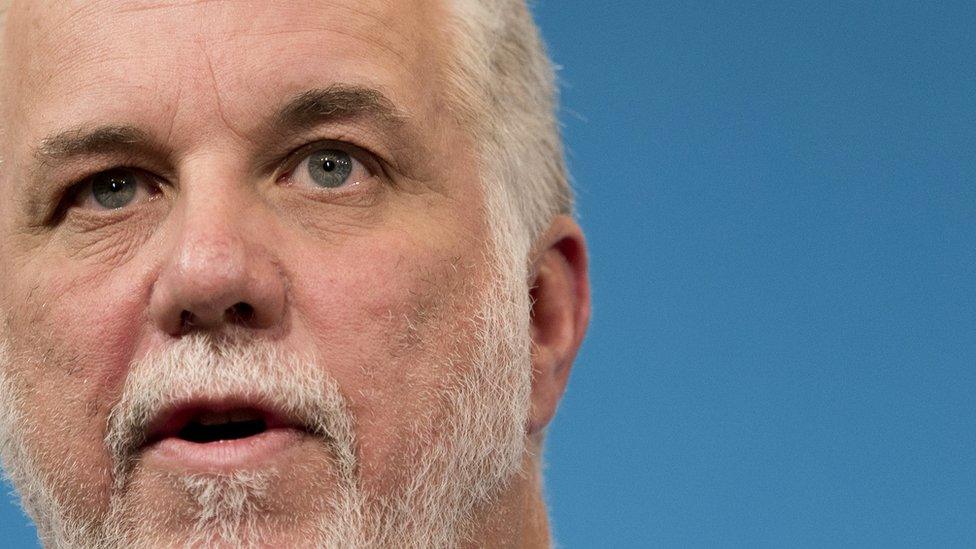
- Published8 October 2017
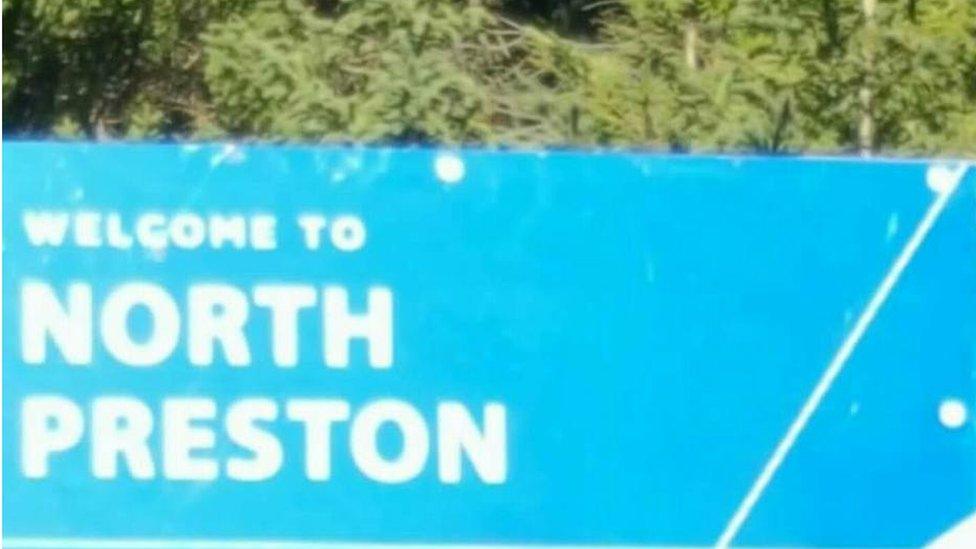
- Published1 October 2019
